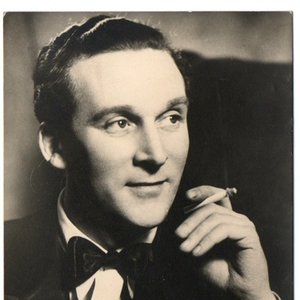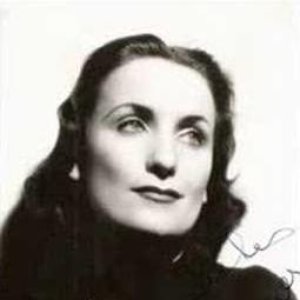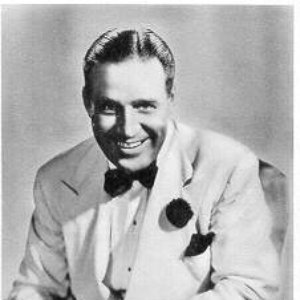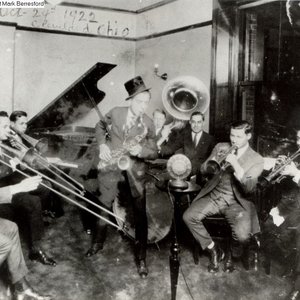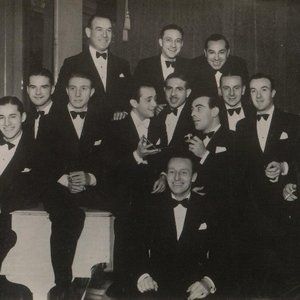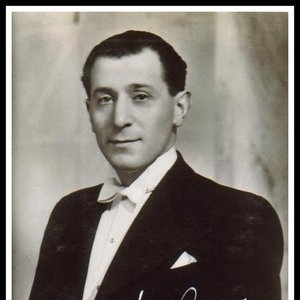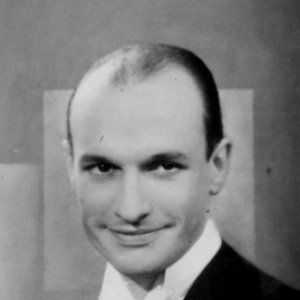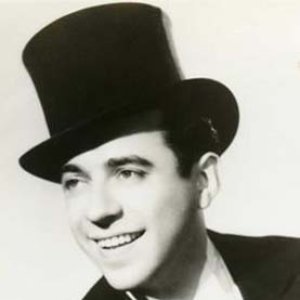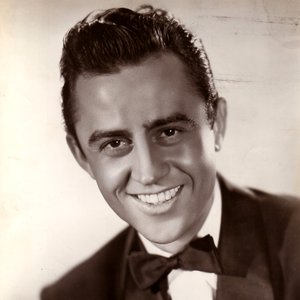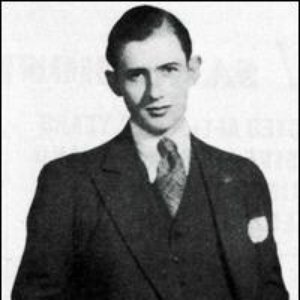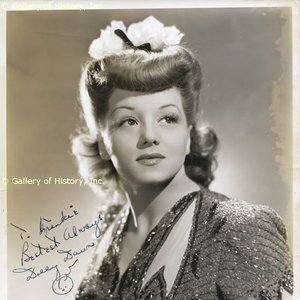Biography
-
Born
20 March 1906
-
Born In
Jersey City, Hudson County, New Jersey, United States
-
Died
3 June 1975 (aged 69)
Oswald George "Ozzie" Nelson (March 20, 1906 – June 3, 1975) was an American band leader, actor, television director and producer. Nelson originated and starred in The Adventures of Ozzie and Harriet, a radio and long-running television series with his wife Harriet and two sons David and Ricky Nelson.
As a student he made pocket money playing saxophone in a band and coaching football. During the Depression, he turned to music as a full-time career.
Nelson started his entertainment career as a band leader. He formed and led the Ozzie Nelson Band, and had some initial limited success. He made his own "big break" in 1930. The New York Daily Mirror ran a poll of its readers to determine their favorite band. He knew that news vendors got credit from the newspaper for unsold copies by returning the front page and discarding the rest of the issue. Gathering hundreds of discarded newspapers, the band filled out ballots in their favor. They edged out Paul Whiteman and were pronounced the winners.
From 1930 through the 1940s, Nelson's band recorded prolifically—first on Brunswick (1930–1933), then Vocalion (1933–1934), then back to Brunswick (1934–1936), Bluebird (1937–1941), Victor (1941) and finally back to Bluebird (1941-through the 1940s). Nelson's records were consistently popular and in 1934 Nelson enjoyed success with his hit song, "Over Somebody Else's Shoulder" which he introduced. Nelson was their primary vocalist and (from August 1932) featured in duets with his other star vocalist, Harriet Hilliard. Nelson's calm, easy vocal style was popular on records and radio and quite similar to son Rick's voice and Harriet's perky vocals added to the band's popularity.
In 1935, Ozzie Nelson and His Orchestra had a number one hit with "And Then Some", which was number one for one week on the U.S. pop singles chart. Ozzie Nelson composed several songs, including "Wave the Stick Blues", "Subway", "Jersey Jive", "Swingin' on the Golden Gate", and "Central Avenue Shuffle".
In October 1935 he married the band's vocalist Harriet Hilliard. The couple had two children. David (1936–2011), became an actor and director. Eric ("Ricky") (1940–1985), became an actor and singer.
Ozzie Nelson appeared with his band in feature films and short subjects of the 1940s, and often played speaking parts, displaying a tongue-in-cheek sense of humor (as in the 1942 musical Strictly in the Groove). He shrewdly promoted the band by agreeing to appear in soundies, three-minute musical movies shown in "film jukeboxes" of the 1940s. In 1952, when he and his family were established as radio and TV favorites, they starred in a feature film, Here Come the Nelsons (which actually doubled as a "pilot" for the TV series).
In the 1940s, Nelson began to look for a way to spend more time with his family, especially his growing sons. Besides band appearances, he and Harriet had been regulars on Red Skelton's radio show. He developed and produced his own radio series, The Adventures of Ozzie and Harriet. The show went on the air in 1944, with their sons played by actors until 1949, and in 1952 it moved over to television (the radio version continued for another two years). The show starred the entire family, and America watched Ozzie and Harriet raise their boys. Nelson was producer and co-writer of the entire series. He was very hands-on and involved with every aspect of the radio and then TV program.
His last television show was in the fall of 1973 and entitled Ozzie's Girls, and lasted for a year. Syndicated only, the premise was Ozzie and Harriet renting their sons' former room to two college girls (one caucasian, one African American), and concerned the Nelsons' efforts at adjusting to living with two young women, after having raised two sons.
Cultural historians have noted that the on-screen character was very different from the real-life Ozzie Nelson, who has been characterized as an authoritarian figure who monitored every aspect of his children's lives. In 1998, A&E broadcast a documentary entitled Ozzie and Harriet: The Adventures of America's Favorite Family, which depicted Ozzie Nelson as a dictatorial personality who "thwarted his sons, preventing them from attending college and reminding them that they were obliged to work on television". Author David Halberstam has written, "the Nelsons arguably were a dysfunctional family. In real life, Ozzie was a workaholic who stole his sons' childhood (by having them grow up in show business)".
In 1973, Ozzie Nelson published his autobiography, Ozzie, (Prentice Hall, 1973, ISBN 0-13-647768-2). He suffered from recurring malignant tumors in his later years, and died of liver cancer. He died at his home in the San Fernando Valley at 4:30 a.m. on June 3, 1975, with his wife and sons at his bedside. Services were held at the Church of the Hills at Forest Lawn, Hollywood Hills, California on Friday, June 6. He is interred with his wife and son (and pop singer) Ricky in the Forest Lawn - Hollywood Hills Cemetery in Los Angeles, California. David Nelson was cremated, and chose not to be interred in the Nelson family plot, instead choosing a niche in Westwood Memorial Park's outdoor Garden of Serenity columbarium.
For his contribution to the television industry, Ozzie Nelson has a star on the Hollywood Walk of Fame at 6555 Hollywood Boulevard. He has an additional star with his wife at 6260 Hollywood Boulevard for their contribution to radio.
Artist descriptions on Last.fm are editable by everyone. Feel free to contribute!
All user-contributed text on this page is available under the Creative Commons Attribution-ShareAlike License; additional terms may apply.


